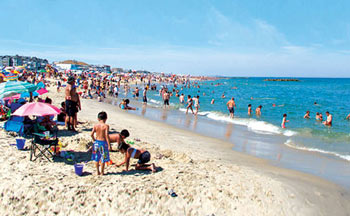|
|
8 Tips for Summer Holidays with Allergies |
Nathalie has a muti allergic 6-year old, Callum, so travelling is not easy. But it is possible and Nathalie is not going to let Callum's allergies stop the whole family having fun. So here are her tops tips for having a safe but still enjoyable summer holiday. |
|
There are some fantastic options if you choose to have a ‘staycation’ and this can often be a good compromise if you’re not quite ready to test going abroad. By having a ‘staycation’ you can take the basics with you, know that you speak the language and can shop for items you trust. Equally, if you do choose to go abroad, many countries now speak English, and also have free from products readily available in their supermarkets. So, to help you, we’ve put together our ‘8 Tips for Summer Holidays and Allergies’:
With lots of preparation, and remaining calm, it is possible to have a successful holiday. And whether you choose to have a ‘staycation’ or to travel abroad, we wish you a safe and reaction free summer! July 2018 For more articles on travelling with allergies and intolerances see here. |

 Summer holidays are now upon us but if you have not yet completed your planning, here are some ideas which hopefully will make your holiday, be it a 'stay-' or 'va-cation', safer and therefore more enjoyable.
Summer holidays are now upon us but if you have not yet completed your planning, here are some ideas which hopefully will make your holiday, be it a 'stay-' or 'va-cation', safer and therefore more enjoyable. 










